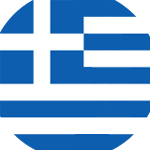Greece became a member of the five institutions that form the World Bank Group in December 1945. It was among the first countries to get a loan to help rebuild the economy after World War II. Today, Greece is a member of the five institutions that form the World Bank Group. The World Bank Group finances projects, designs policies, and delivers programs to end poverty in the developing world.
Overview
Gateway to Knowledge and Innovation for the Mediterranean and Sub-Saharan Africa
The World Bank Group (WBG) Office in Rome serves the WBG’s External and Corporate Relations (ECR) function across Southern Europe. This office plays a crucial role in steering discussions and collaborations with Southern European member countries, including Italy, Spain, Greece, Portugal, and Cyprus.
The WBG Rome Office also serves as a Knowledge Hub for the Mediterranean and Sub-Saharan Africa in support of the World Bank Group’s strategic vision to become a Knowledge Bank. The Office leverages the expertise of the Rome Center for Development Data (C4D2), the newly established World Bank Institute for Economic Development, the Social Protection and Jobs Core Learning and Solutions Services (SPJ-CLASS) and the Sustainable Development Team. This collaborative effort involves key Italian and Southern European stakeholders, academia, and major relevant stakeholders, setting a new standard for knowledge exchange and development impact in the region.
The Office also supports outreach activities, often in collaboration with Greek partners, such as organizing and supporting conferences, seminars, and other events on development-related topics. The office serves as an entry point for groups in Greece wishing to contact World Bank staff across the world or access the plethora of information the Bank publishes, and it responds to media queries. It also seeks to increase opportunities for collaboration between Greece and the World Bank Group through co-financing, trust funds, and joint analytical work in sectors and regions of mutual interest.
Through these initiatives, the Rome Office is not only a bridge to Southern Europe but also a beacon of innovation and knowledge-sharing for tackling global development challenges. This office is set to play a pivotal role in shaping a sustainable and prosperous future for the Mediterranean and Sub-Saharan Africa.
World Bank Governor
The Governors represent their country on the World Bank Board of Governors, the Bank’s senior decision-making body. Meeting twice a year, they have the power to admit and suspend members of the World Bank Group, increase or decrease the authorized capital stock, determine the distribution of the net income of the Bank, and decide on the World Bank Group’s overall strategic direction.
To connect with the current governors and alternate governors offices, please refer to this document.
World Bank Executive Director
The Governor delegates responsibility for overseeing the day-to-day business of Greece’s interests at the Bank to the Executive Director (ED) for Greece. EDs reside in Washington and normally meet twice a week to decide on borrowing and financial questions, projects, and policies that impact World Bank Group general operations. Greece's Executive Director also represents Albania, Italy, Portugal, San Marino, Timor-Leste, and Malta.
Shares and Voting Power
The World Bank Group has a weighted system of voting. All members of the Bank receive votes consisting of share votes (one vote for each share of the Bank's capital stock held by the member) plus basic votes (calculated so that the sum of all basic votes is equal to 5.55% of the sum of basic votes and share votes for all members). The voting power distribution differs from agency to agency within the World Bank Group.
For the latest voting status, please visit the Voting Powers page.
For information on Greece’s aid flows as a donor, please visit the Aid Flows Greece donor page.
Additional Resources
Contact
Via Labicana, 110
00184 Rome, Italy

